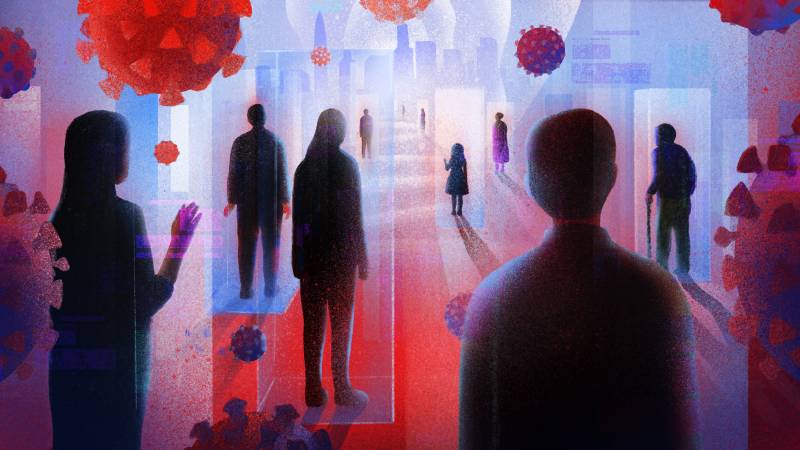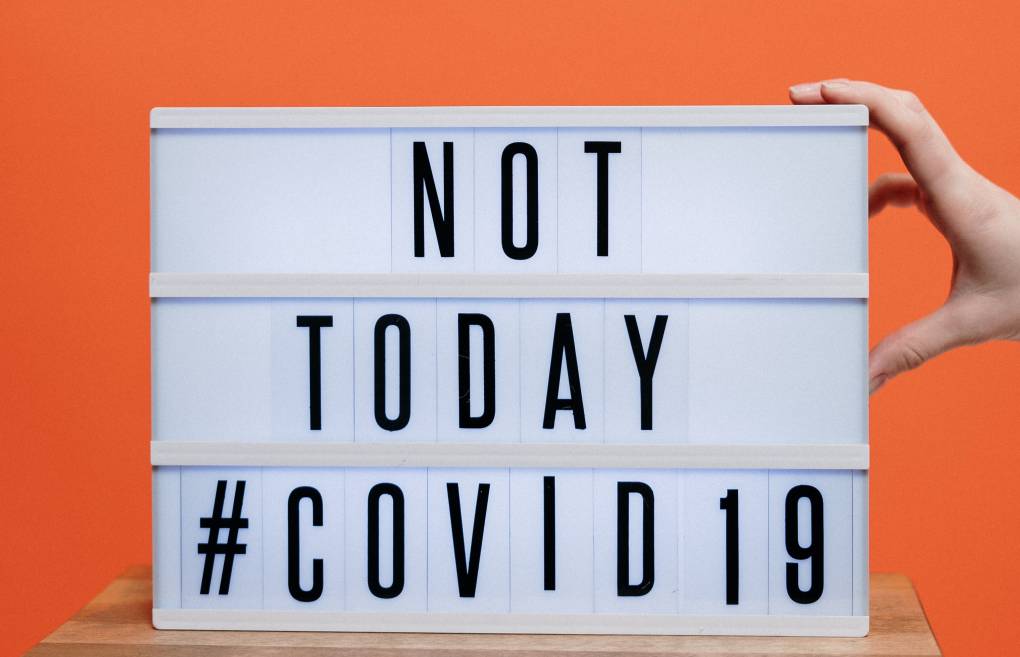Recognize Our Losses
Whether we've named them are not, these are some of the community-wide losses many of us are grieving. Consider how you feel when you think of these.
Social Connections
Perhaps the most impactful of the immediate losses as we hunker down at home is the separation from close friends and family. "Children aren't able to play together. There's no in-person social engagement, no hugging, no touching which is disruptive to our emotional well-being," says Daniel.
Separation from our colleagues and officemates also creates significant loss. "Our work environment is like a second family. Even if we don't love all the people we work with, we still depend on each other," says Lott.
Habits and Habitat
With the world outside our homes no longer safe to inhabit the way we once did, Daniel says we've lost our "habits and habitats," as we can no longer engage in our usual routines and rituals. And no matter how mundane they may have seemed — whether grabbing a morning coffee at the local café, driving to work or picking up the kids from school — routines help define your sense of self in the world. Losing them, Daniel says, "shocks your system."
Assumptions and Security
We go to sleep assuming we'll wake up the next morning, "that the sun will be there and your friends will all be alive and you'll be healthy," Weller says. But the spread of the virus has shaken nearly every assumption we once counted on. "And so we're losing our sense of safety in the world and our assumptions about ourselves," he says.
Trust in Our Systems
When government leaders, government agencies, medical systems, religious bodies, the stock market and corporations fail to meet public expectations, it can leave citizens feeling betrayed and emotionally unmoored. "We are all grieving this loss," Daniel says.
Sympathetic Loss for Others
Even if you're not directly affected by a particular loss, you may be feeling the grief of others, including those of displaced workers, of health care workers on the frontlines, of people barred from visiting elderly relatives in nursing homes, of those who have already lost friends and family to the virus and to those who will.
4 Ways to Honor Your Grief
Once you identify the losses you're feeling, look for ways to honor the grief surrounding you, grief experts urge.
Bear Witness and Communicate
Sharing our stories is an essential step, Daniel says.
"If you can't talk about what's happened to you and you can't share it, you can't really start working on it," Daniel says. "So, communicate with your friends and family about your experience."
It can be as simple as picking up the phone and calling a friend or family member, says Weller. He suggests simply asking for and offering a space in which to share your feelings without either of you offering advice or trying to fix anything for the other.
"Grief is not a problem to be solved," he says. "It's a presence in the psyche awaiting, witnessing."
For those with robust social networks, Daniel suggests gathering a group of friends virtually to share these losses together. Using apps, such as Zoom, Skype, FaceTime or Facebook Live, virtual meetups are easy to set up on a daily or weekly basis.
Write, Create, Express
Whether you're an extrovert or introvert, keeping a written or recorded journal of these days offers another way to express, to identify and to acknowledge loss and grief.


9(MDAxOTAwOTE4MDEyMTkxMDAzNjczZDljZA004))